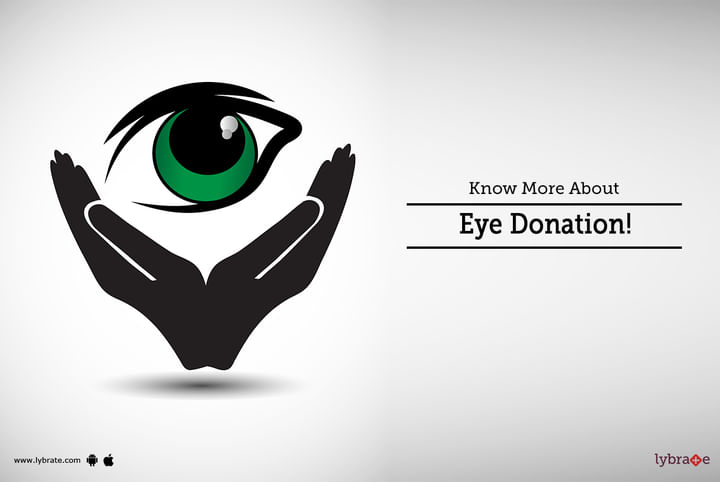Know More About Eye Donation!
Eye donation is one of the most selfless acts in the world that can radically change people’s lives. Corneal blindness is the most common cause of blindness which is cured nowadays by modern medical procedures. Corneal transplantation is carried out by replacing the impaired cornea with the healthy cornea from a donor. But still, many people suffer from this ailment due to the lack of donors.
Let us know about some of the most important facts about eye donation.
Basic facts
-
Eyes can be donated within 6 to 8 hours after death
-
As it takes only about 30 minutes, it does not delay the funeral procedures. The eye bank team will visit the deceased person’s place to remove the eyes
-
The identities of the donors and the recipients are kept confidential
-
The eye removal process does not cause any disfigurement to the donor
-
One pair of eyes can cure to two people suffering from corneal blindness
Who can be an eye donor?
Anyone can be an eye donor irrespective of age and sex. People suffering from diabetes, high blood pressure, asthma, glaucoma, cataract and wear spectacles can donate their eyes. But people suffering from AIDS, Rabies, Tetanus, Cholera, Hepatitis B and C, acute leukaemia, Septicaemia, or other infectious diseases such as Encephalitis and Meningitis cannot be donors.
People who are not suffering from any communicable and non-communicable diseases are also eligible to donate their eyes.
To be an eye donor, you need to register yourself with the nearest eye bank or hospital. You need to fill a form for pledging your eyes. Families are also offered the option of donation after a loved one passes away. The families may give consent for the donation. After that, they will be given a donor card, which represents their intention for eye donation.
Parts of the eye that can be transplanted
- Cornea
- Tear ducts
- Amniotic membrane
- Eyelashes
- Eyelids
Apart from the ailments mentioned earlier, such as AIDS, eye donations are never refused. This is because even if the eyes cannot cure corneal blindness, they can be utilized for medical research.
Things to do for the relatives of the deceased donor
- Close the person’s eyelids and raise their head by keeping a pillow beneath it
- Contact the registered eye bank immediately and give them the address
- Keep the death certificate of the deceased ready if you have obtained it from the physician
- The donation will be carried out only with the written consent of the next of kin. Two witnesses have to be present during the process
Eye donation does not involve money at any step, so the parties involved need not be worried. As the rate of success of corneal transplants is very high, more people must come forward to pledge their eyes and help others.



+1.svg)
